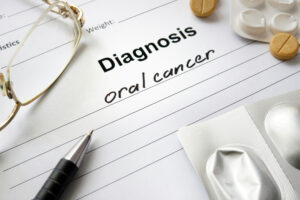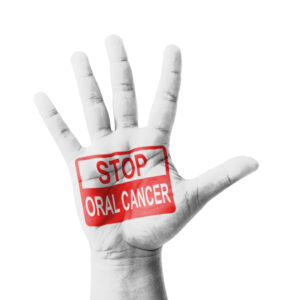Undergoing chemotherapy is a challenging time for many patients, both physically and emotionally. One question that often arises is whether it’s safe to undergo dental treatment while receiving chemotherapy. Oral health is crucial during this time, as chemotherapy can weaken your immune system and increase your risk of infections, including those in your mouth.
In this blog, Najmi dental will explore the considerations for dental care during chemotherapy, how to manage your oral health, and which procedures are safe for cancer patients.
How Chemotherapy Affects Oral Health
Chemotherapy works by attacking rapidly dividing cancer cells, but it can also impact other fast-growing cells in the body, including those in the mouth. This can lead to a variety of oral health complications, including:
- Mouth sores (mucositis)
- Dry mouth (xerostomia)
- Gum inflammation (gingivitis)
- Infections (including fungal, bacterial, and viral infections)
- Tooth decay
- Bleeding gums
Because of these potential side effects, maintaining good oral health is essential during chemotherapy. The weakened immune system that results from cancer treatments makes it more difficult for the body to fight off infections, and untreated oral health issues can become serious.
Can You Have Dental Treatment During Chemotherapy?
Yes, dental treatment can be performed during chemotherapy, but it requires careful planning and coordination between your oncologist and dentist. The goal is to avoid any complications that could arise due to the weakened immune system and to protect your overall health. Here are some key considerations:
1. Timing of Dental Treatment
The timing of dental treatment is crucial when undergoing chemotherapy. It’s generally recommended to complete any necessary dental work before starting chemotherapy to minimise the risk of infections or complications.
However, if dental treatment is required during chemotherapy, your dentist and oncologist will work together to determine the best time. Ideally, non-urgent procedures are postponed until your immune system is stronger, which is usually during a chemotherapy break or when blood cell counts are at safer levels.
2. Pre-Chemotherapy Dental Exam
Before starting chemotherapy, it’s important to visit your dentist for a thorough pre-treatment dental examination. This allows your dentist to address any existing dental issues, such as cavities, gum disease, or infections, that could worsen during chemotherapy.
By addressing these problems early, you can reduce the risk of complications during cancer treatment. Your dentist will likely perform:
- A full examination of your teeth, gums, and mouth
- X-rays to check for hidden problems
- Professional cleaning to remove plaque and tartar
3. Emergency Dental Care During Chemotherapy
Dental emergencies, such as severe pain, abscesses, or infections, may still occur during chemotherapy. If you need emergency dental treatment, it is possible to receive care, but precautions must be taken to minimise the risk of complications. Your dentist will likely coordinate with your oncologist to determine whether the procedure can be safely performed.
In emergencies, treatments such as tooth extractions or root canals may be necessary, but extra care will be taken to manage pain and reduce the risk of infection. Local anaesthesia is typically safe to use, but your dentist may avoid certain medications, such as those that could suppress your immune system further.
Managing Oral Health During Chemotherapy
Since chemotherapy can significantly affect your oral health, it’s important to take extra precautions to maintain good oral hygiene and prevent complications. Here are some essential tips for managing oral health during chemotherapy:
1. Brush and Floss Gently
Brushing and flossing are crucial for keeping your teeth and gums healthy, but during chemotherapy, your gums may become more sensitive. Use a soft-bristled toothbrush and brush gently twice a day to avoid irritating your gums. Floss daily, but be cautious around any areas that may be prone to bleeding.
2. Stay Hydrated to Combat Dry Mouth
Dry mouth is a common side effect of chemotherapy that can lead to tooth decay and infections. Staying hydrated by drinking plenty of water is important to keep your mouth moist. You can also use saliva substitutes or sugar-free lozenges to help stimulate saliva production.
3. Avoid Alcohol-Based Mouthwash
Alcohol-based mouthwashes can cause further dryness and irritation. Instead, use an alcohol-free mouthwash to help keep your mouth clean without aggravating sensitive tissues.
4. Manage Mouth Sores
Mouth sores (mucositis) are another common side effect of chemotherapy. If you develop sores, avoid spicy or acidic foods that can cause irritation. Your doctor or dentist may also prescribe special mouth rinses to soothe the sores and help them heal.
5. Visit Your Dentist Regularly
Regular dental visits are important for monitoring your oral health during chemotherapy. Even if you don’t need any dental treatment, seeing your dentist for regular check-ups can help catch any issues early, before they become serious.
Your dentist may recommend more frequent cleanings or fluoride treatments to prevent tooth decay. If you’re experiencing any pain, discomfort, or changes in your mouth, don’t hesitate to reach out to your dentist for advice.
Dental Treatments to Avoid During Chemotherapy
While many dental treatments can be safely performed with the right precautions, there are some procedures that are generally avoided during chemotherapy unless absolutely necessary. These include:
- Elective dental procedures, such as cosmetic treatments (teeth whitening, veneers) and non-urgent fillings, are typically postponed until after chemotherapy is completed.
- Surgical procedures, such as wisdom tooth extractions or dental implants, may pose a higher risk of infection due to a weakened immune system. These are usually delayed until your immune system is stronger.
- Procedures requiring sedation or extensive medication use may also be avoided due to concerns about how these treatments interact with chemotherapy medications.
Coordinating Care with Your Healthcare Team
Communication between your healthcare providers is crucial when undergoing chemotherapy and dental treatment. Your oncologist and dentist should work closely to ensure that any dental treatment aligns with your overall cancer treatment plan. This coordination helps reduce risks and ensures that you receive the best possible care.
Before any dental treatment, make sure your dentist is aware of:
- The type and timing of your chemotherapy treatments
- Any medications you’re taking
- Your blood cell counts (to assess your immune system’s strength)
This information will help your dentist plan the safest and most appropriate course of action for your oral health needs.
Final Thoughts
Maintaining good oral health during chemotherapy is vital to your overall well-being. While some dental treatments may need to be postponed, emergency care can still be performed safely with careful planning and coordination between your dentist and oncologist. Taking steps to prevent oral health issues, such as practising gentle oral hygiene and staying hydrated, can make a big difference in preventing complications.
If you’re undergoing chemotherapy and have concerns about your dental health, don’t hesitate to contact Najmi Dental. By working closely with your healthcare team, you can ensure that both your oral and overall health are well cared for throughout your cancer treatment.


